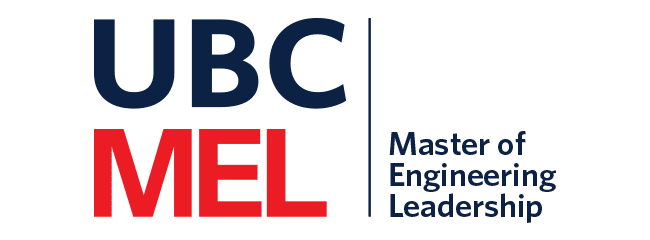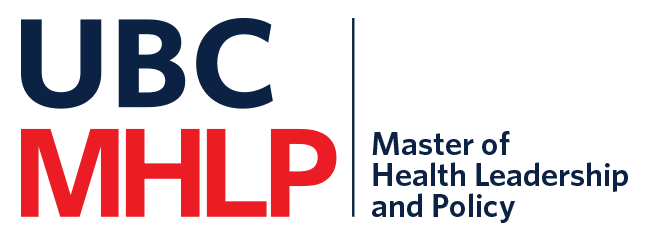Keep investing in yourself and your personal growth

After graduating from an intense master’s program and returning to the workforce, it’s all too easy to get caught up in the busy-ness of everyday life and not make the time to actively learn, develop and grow.
But continuous self-improvement and personal growth should always be a priority.
Most great leaders will tell you that they never stop developing new skills, trying out new leadership approaches and expanding their knowledge base – to the benefit of their own personal development as well as that of their teams and organizations.
Adopting a mindset that focuses on improvement and growth can lead to a wide array of benefits that may help you thrive and excel in your career, especially if you’re an aspiring leader.
Try these self-improvement actions to strengthen your leadership skills
Being a leader comes with responsibilities. When you’re leading a team, you need to communicate a clear vision, inspire people with your passion, demonstrate creativity and have the management skills to plan, organize and deliver. Think about your comfort with different facets of leadership and the actions you can take to become a more effective leader.
Consider these seven actions identified by Brent Gleeson (founder of TakingPoint Leadership, former Navy SEAL, globally recognized speaker, award-winning entrepreneur and the bestselling author) as a starting point:
- Actively improve your self-awareness. Developing your emotional intelligence is key. Emotional intelligence is defined as the capacity to be aware of, control and express one’s emotions, and to handle interpersonal relationships judiciously and empathetically. Leaders with high emotional intelligence are able to create more connected and motivated teams. What can you do to deepen your emotional intelligence?
- Enhance your communication style and technique. Clear and effective communication – and perhaps even over communication at times – ensures your staff understand their objectives, especially when things may be in a constant of flux. Improving the way you communicate makes it more likely that your team are all heading in the same direction. Would a different communication style help you resolve a current issue at work?
- Learn to show greater degrees of empathy. Empathetic leadership means having the ability to understand the needs of others and being aware of their feelings and thoughts. Demonstrating a high level of empathy can enable you to build strong teams, inspire others, elicit loyalty and nurture the next generation of leaders. How do you show empathy for your team members?
- Develop skills to motivate your self and others. Motivated employees are more productive and engaged and more likely to produce better quality work more efficiently. How can you better motivate your team when they feel dissatisfied with the status quo, when morale is low or when objectives and success may seem unattainable?
- Invest time in mentorship and coaching. Take the time to mentor and coach your direct reports so they, too, can set their own targets for self-improvement and personal growth. And seek out mentors for yourself: having a mentor can help you build new skills faster, improve job efficiency, increase personal credibility and can foster better relationships with your supervisors. What can you do to coach others? And who might you seek out as a mentor?
- Improve your capability to manage change. Very few successful organizations remain static; to remain successful, they need to change and evolve. Change leaders are central to building a resilient and agile organization that can deal with uncertainty and they are critical in the organization’s long-term success. How can you strengthen your skills as a change leader?
- Manage anxiety through better wellness activities. When leaders practice healthy stress management and self-care, they signal that it’s all right for others to do the same. This helps maintain a positive mood for the leader and the team, and it enables an organization and its staff as a whole to become healthier and better equipped to respond to challenging situations and manage future crises. What can you do to invest in your wellness?
Great leaders enable great organizations
Investing the time in these seven actions is an investment in your personal and professional growth. Deepening your skills as a leader is a lifelong journey – and one that comes with significant rewards.
You’ve already noticed the difference in your confidence levels as a leader as a result of your experience in the MEL or MHLP, and building your skills will only help you be more effective as a leader, help you build high-performing teams, and make significant contributions to your organization.
It all starts with acknowledging that investing in continuous self-improvement is an essential foundation for career progression and personal satisfaction.
Application Deadlines
The online application portal for the January 2025 has closed.
Get ready to apply!
Admissions for the 2026 intake will open on January 1, 2025.
How to ApplyAssess your Eligibility
Determine if your professional experience and academic background make you a fit for your desired program.
Start AssessmentJoin us for an
Info Session
Sign up for our latest online information sessions and discover what our programs have to offer.
Sign Up NowFeatured Alumni

Chris Moore
Chris Moore significantly altered his career path after completing the one-year MEL in High Performance Buildings degree, and he’s now working in a new area more aligned with his interests and values.

